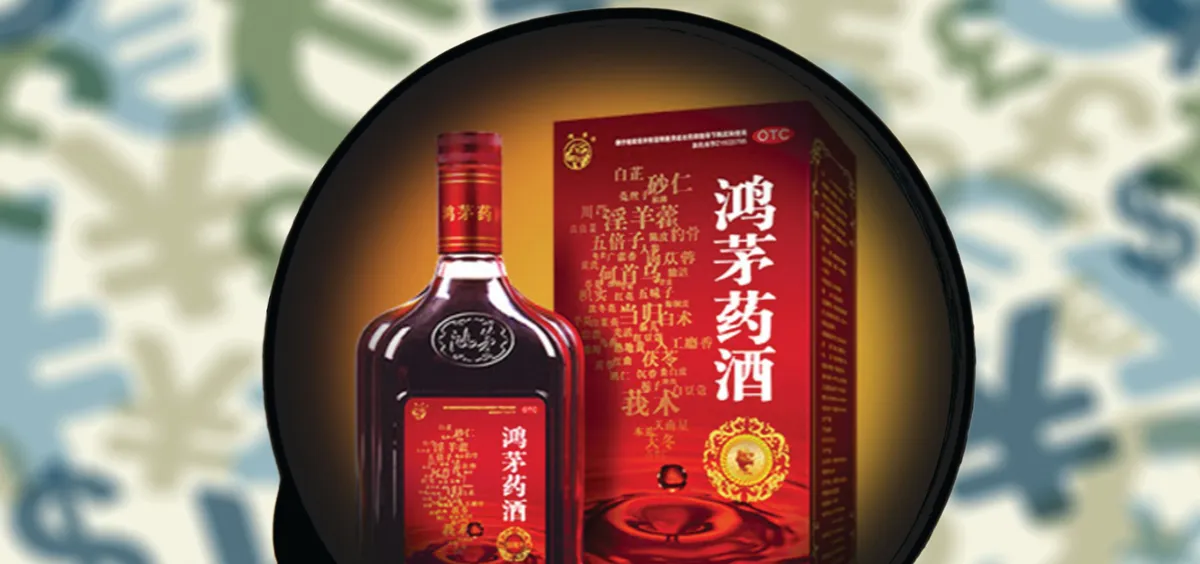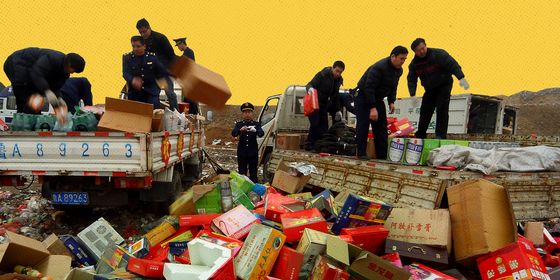China has a history of business abusing local laws to persecute enemies
Update 5-16-2018, for those following the Hongmao Medicinal Liquor saga: Dr. Tan is reported to have been admitted into a psychiatric hospital following a nervous breakdown; his family has since deleted the Weibo post announcing this development.
A “fake medicine” scandal has ignited a nationwide furor over police procedure, with no less than China’s official Xinhua News Agency calling for public security bureaus (PSB) to “exercise power doubly prudently” following the three-month detention of a corporate whistleblower.
The dispute—between Guangdong anesthetist Tan Qindong and the manufacturers of Hongmao Medicinal Liquor—began in December 2017. Dr. Tan published a blog calling the over-the-counter tonic—which has already been cited for false advertising in 25 provinces—useless “poison.” PSB officers from Hongmao’s home county of Liangcheng, Inner Mongolia, seized Dr. Tan in Guangzhou on January 12 for the crime of “impairing [Hongmao’s] commercial reputation.”
Legal experts around China have since pointed out that the crime in question, outlined in Article 221 of the PRC’s Criminal Law, typically pertains to falsehoods alleged by a competitor that damage a business’s reputation. It is up to the company to prove that the damaging information is both false and that it led directly to a commercial loss—and the police exist to make arrests on matters of public security, rather than civil disputes. Yet the outcome of Tan’s case is not unexpected in a country when well-connected companies and officials have been known to misuse public resources.
Described broadly in media as a “abuse of public power”—a category which encompasses actions from nepotism to misuse of public vehicles—Dr. Tan’s case has numerous previous parallels, perhaps most absurdly an incident in August 2017, when a man called Zhang was arrested for complaining about the quality and price of food at a Hebei hospital. In 2010, a Ningxia resident was arrested, following another cross-country manhunt, for alleging online that a classmate—who happened to be the son of two county officials—had cheated on his civil service exams. In both cases, the “reputation damage” charges were later dropped by police.
The PSB have dealt out far more severe consequences, though, when more than just “corporate reputation” was on the line: In 2006, a university student named Huang Jing was detained for 10 months by Beijing’s Haidian police for “blackmail and extortion” after allegedly demanding too much compensation for her defective laptop from computer manufacturer Asus—Huang had sought five million USD. In the aftermath of the 2008 tainted milk-powder scandal, two of the affected parents, Zhao Lianhai and Guo Tao, were arrested for “provocation” and “blackmail” respectively, after demanding compensation from formula manufacturers—the latter was jailed for five years.
Dr. Tan has since been released from detention, while Inner Mongolia’s PSB has ordered its county-level leaders to make further investigation into the case. The doctor now says he doesn’t regret his actions and is prepared to “serve a year’s sentence in the worst case”—let’s hope he doesn’t complain about the prison food in the meantime.
Complainer’s Calamity is a story from our issue, “Vital Signs.” To read the entire issue, become a subscriber and receive the full magazine.












